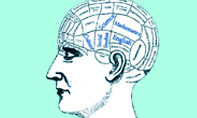Correlation of Intelligence Quotient (IQ) of Children Younger than 12 Years Old with History of Preterm Birth
DOI:
https://doi.org/10.31661/gmj.v2i3.84Keywords:
Intelligent Quotient (IQ), Prematurity, School age, Raven TestAbstract
Introduction: Intelligence is the ability of using the different powers and effective behaviors or adapting to new situations or diagnosing conditions and qualities of the environment. It seems that a considerable damage to the brain as a result of premature birth in the last weeks of pregnancy in the maturational - structuring process of the brain can be correlated with Intelligent Quotient (IQ). Due to the high incidence of preterm birth and its associated disorders and its impact on the society and according to a few studies in this field, this study was conducted with the aim of determining the association between IQ and preterm birth.
Materials and Methods: This cohort study was performed on 303 children of school age. All subjects randomly allocated to cohort groups (n=147) or controls (n=156) with or without any history of preterm birth, respectively. In this study, in addition to demographic characteristics such as age, sex, gestational age at the delivery and parents’ educational levels, the standard Raven test was used by trained interviewers to measure the IQ in children. Then data were analyzed by Statistical software SPSS version 16.0 by central statistical indicators of independent T tests and Chi-square test. Significant difference was set at P<0.05.
Results: The mean IQ of the children in the study, obtained the score of 99.75±9.26 regarding which the independent T-test results showed no significant difference between two groups. In this study, no significant relationship was found between age and gestational age and IQ (P=0.499 and P=0.255, respectively). But this study showed a significant positive correlation between IQ and weight and head circumference at birth (r=0.179, P=0.002 and r=0.299, P=<0.001, respectively).
Conclusion: Unlike results of a few previous studies on this issue, no significant differences were found between the two groups. It is recommended that future studies to be done on broader populations, and behavioral and psychological dimensions should be considered.








